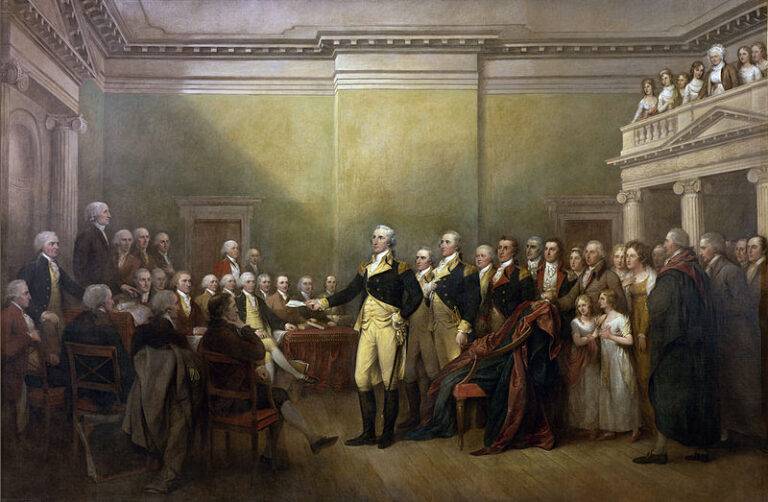1253: Death of Clare of Assisi (b.1194). She was an early follower of the “joyous poverty” of Francis of Assisi, and founded her own convent as a place where women could join her in a Franciscan style enclosure of worship and poverty. She was canonized in 1255 by Pope Alexander IV, a mere two years after her death.
1305: Scottish patriot and nationalist William Wallace is captured near Glasgow and hauled off to London, where he is accused, tried, convicted and executed for treason against Edward I. As he faced his accusers, Wallace declared: “I could not be a traitor to Edward, for I was never his subject.”
1519: Five ships under the command of Ferdinand Magellan set sail from Seville on what will become a three year voyage of discovery, and the first circumnavigation of the globe.
1576: The cornerstone is laid for an observatory designed by the great Danish astronomer Tycho Brahe, whose careful and accurate observations of the motions of the heavenly bodies- comets and planets in particular- laid the foundation for the explosion of astronomical theory and science for the next three hundred years. His assistant, Johannes Kepler, carried on his work after Brahe’s death in 1601.
1607: First performance of William Shakespeare’s Macbeth.
1620: The chartered merchant ship Mayflower, in company with the Speedwell, departs Southampton, England on its first attempt to reach North America with its Puritan passengers, who plan on colonizing “North Virginia” near the mouth of the Hudson River. After a very short day at sea, Speedwell develops severe leaks and the two ships return to port for repairs.
1742: Birth of Nathanael Greene (d.1786), who rose from Private of the Rhode Island militia to Major General of the Continental Army and became one of George Washington’s most trusted advisors and effective subordinate commanders.
1768: Completion of the first ascent of Mont Blanc, the tallest mountain in Europe, by Frenchmen Jacques Balmat and Michel-Gabriel Paccard.
1776: Six weeks after it left the printer, news of the American Colonie’s Declaration of Independence makes it to London.
1782: General George Washington orders the creation of the Badge of Military Merit to honor wounded soldiers who “has given of his blood in defense of his homeland…” The idea of the award was revived in 1927 and formally re-established as the Purple Heart in 1931 by Chief of Staff Douglas MacArthur.
1792: Three years into the increasing chaos of the French Revolution, a mob finally storms the Tuileries Palace and arrests King Louis XVI.
1794: President George Washington invokes the Militia Act of 1792 to suppress the Whiskey Rebellion, an increasingly violent anti-tax revolt that centered in western Pennsylvania. Washington raised a federal militia (via a draft*, because there weren’t enough volunteers) of 12,500 men under the command Virginia governor Henry “Lighthorse Harry” Lee. After a Presidential pass-in-review in Cumberland, Maryland, the army marched westward to regain control of the situation. As news of the army’s movement spread, the revolt collapsed before it could turn into an organized armed resistance. Washington’s actions during this affair are credited with confirming the federal government’s authority and willingness to exercise itself** as a national government.
1864: Rear Admiral David Farragut leads a US Navy flotilla into the fortified confines of Mobile Bay, with the mission of permanently closing the port to further trade and blockade running. During the previous year, while Farragut’s attentions were earlier turned to returning the Mississippi River to Union control, the Confederates fortified Mobile with three forts ashore and a minefield guarding the main channel into the bay. Farragut’s flotilla entered the bay at dawn, guns blazing, and overwhelmed the shoreward defenses. When one of his captains slowed his ship due to the threat of the mines (“torpedoes”), Farragut responded with “Damn the torpedoes! Full speed ahead!” Of note from the Confederate perspective was the single-handed fight of the ironclad ram CSS Tennessee against the entire Union fleet, which took three hours to finally force its surrender.
1876: Birth of Margaretha Geertruide Zelle MacLeod (d.1917), better known as Mata Hari, the sultry Dutch “courtesan” of multiple dozens of military and civilian leaders on both sides of the trenches during the Great War. In March of 1905 she opened her act as an exotic dancer on stage in Paris, becoming an overnight sensation, and was almost immediately taken in by a millionaire industrialist. Often imitated, never duplicated, her sensual exploits kept her in the public limelight for a decade. With the Netherlands remaining neutral during the conflict, Mata Hari exploited her Dutch nationality to travel freely between Germany and France via Britain and Spain during the course of the war. At one point during an interview with British intelligence, she alluded to working for French intelligence, a relationship the French would neither confirm nor deny. After an intercepted German cable from Spain appeared to implicate her, Mata Hari was arrested by the French in February, 1917, charged and convicted of espionage, and executed by firing squad in October. She steadfastly denied the charge of being a double agent. At her execution she stood without blindfold, blew a kiss to her lawyer, with her last words being, “Merci, monsieur.” A more lurid account has her flinging open her chemise shouting “Harlot, yes, but traitor, never!” Neither account has a shred of evidence, but they reflect the intensity of public emotion that surrounded her case.
1889: At Auburn Prison in New York, the first execution by electrocution is conducted on convicted murderer William Kemmler. It took two jolts to do the job; the first 17 seconds of 770 volts blew a fuse before killing him. On the second attempt 1,030 volts were applied for two minutes. Power was shut off when smoke started emanating from his head. Dr. Albert Southwick, a dentist who was a strong advocate of electrocution as a more humane death declared, “We live in a higher civilization from this day on.” George Westinghouse, who actually put electrical power to practical application elsewhere, stated, “They would have done better with an axe.”
1908: After four and a half years of guarded patent applications and many more months of practice and refinement in the use of their flying machine on the Huffman Prairie outside their Dayton hometown, Wilbur Wright opens a European flying tour on the race course at Le Mans, France. The formerly skeptical French press is suddenly agog with the skill and ease with which Wright pilots his aero-plane, and the man and his machine become the toast of the Continent. The European tour continues through the late Spring of 1909, concurrent with Orville’s series of stateside test flights for the US Army.
1914: Great War- the descent continues: Serbia declares war on Germany. Austria declares war on on Russia. Germany sorties 10 Unterseeboten from their base in Helgoland on their first wartime patrols against the Royal Navy.
1919: The Constitution of the Weimar Republic is adopted by the post-revolutionary German Reichstag. It is designed to create a vibrant, multi-house, representative democracy, but it never lived up to its promise. Coming as it does on the heels of centuries of autocratic government, the physical and spiritual exhaustion of the Great War, and the suffocating provisions of the Treaty of Versailles, the newly-created government cannot cope with the economic and political upheavals that surge through Europe in general, and Germany in particular. The Weimar period created the conditions for the rise of the Nazi party in 1933.
1926: Harry Houdini performs his most difficult escape, spending 91 minutes in a sealed tank before emerging unscathed.
1928: Birth of 1960’s pop artist Andy Warhol (d.1985). Warhol was a successful magazine and ad illustrator who became a leading artist of the 1960s Pop art movements. He ventured into a wide variety of art forms, including performance art, filmmaking, video installations and writing and controversially blurred the lines between fine art and mainstream aesthetics. Warhol died on February 22, 1987, in New York City.
1930: Birth of Neil Armstrong (d.2012)- Gemini-8 Commander; Apollo-11 Commander; First man on the moon.
1934: Opening day for Alcatraz Federal Prison in the middle of San Francisco Bay. Given the frigid water and surging currents, no-one ever escaped and survived.
1940: Nazi Germany annexes the French-German-French-German provinces of Alsace-Lorraine into the greater German Reich.
1942: Six would-be German saboteurs are executed in Washington, DC, a mere 8 weeks after their arrests in Long Island, New York and Ponte Vedra, Florida.
1945: Hiroshima, a modern city on Japan’s Honshu Island, was largely destroyed by an atomic bomb during World War II. A single American B-29 bomber, nicknamed Enola Gay, drops the world’s first operational atomic bomb over the Japanese industrial center of Hiroshima. The 1200 foot above-ground-level burst flattens all but the most robust masonry buildings and the thermal pulse ignites and burns to ash the 90 percent of the city that is built of wood. 70,000 Japanese are killed immediately, with tens of thousands later dying of the direct effects of radiation and burns.
1962: Death of Marilyn Monroe (b.1926).
1964: In the first response to the now-notorious Gulf of Tonkin Incident (DLH 8/2), aircraft from the carriers USS Ticonderoga (CVA-14) and USS Constellation (CVA-64) launch 60 sorties against the North Vietnamese patrol boat base and oil storage facility, destroying 25 boats and eliminating their entire stock of fuel.
1988: For the first time in its history, lights are turned on for a night game at Wrigley Field in Chicago.
1990: Four days after Iraq invades and occupies Kuwait, the United Nations Security Council orders a global trade embargo against Iraq.
1990: The Magellan space probe reaches the planet Venus.
1991: Faced with continually declining sales, French car maker Peugeot announces its intention to withdraw from the U.S. car market.




Great educational read, adding new knowledge that I wasn't aware of. Thank you!
The current town seal is much better.
I was born in Cape Charles and spent my childhood there. I played little league baseball over "the hump" back…
Nothing wrong with the current seal, from left to right. The Jetty, built for the protection of the harbor the…
You sure talk alot. Why don't you put your real name out here instead of hiding behind a moniker. Alot…